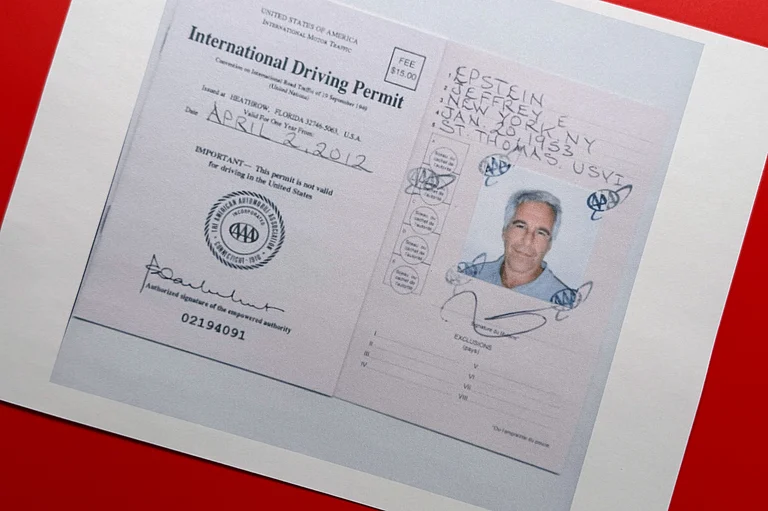If events in the infotech sector move faster than imagination, can the laws governing it be far behind? The first one took several months to prepare and iron out the wrinkles, but the second draft legislation to govern the e-age is already out of the drawing board and in the hands of decision-makers.
Barely two months after the IT Bill was passed by Parliament, the wide-ranging ICE (information-communication-entertainment) Bill, 2000, is before the cabinet. After the Group of Ministers approved the Bill in principle, it is awaiting ratification by the Cabinet Committee on Economic Affairs and hopes to make an entry in Parliament in the monsoon session.
The IT Act put India in the Ivy League of nations with similar legislation. The ICE Bill will take her ahead of many of them. Even in India, the Bill, which aims at enabling a rapid convergence of broadcasting, telecommunications, Internet and information technologies to benefit the average citizen, is far ahead of its time. Right now, services in these three growth sectors are provided by three separate entities, and, except in entertainment, in an infrastructure controlled by the government.
What then will the ICE age be like for the average Indian citizen? In an explanatory note to the draft Bill, the government says it was necessary to structure an ICE authority to reflect the changes in the regulatory landscape. The ICE Act will help streamline licensing activities, accelerate the decision-making process and allow public faster and easier access to information through increased automation and efficiency. "The aim is to make the ICE Act, 2000, a one-stop digital shop where form-filling and document-location is easy and instantaneous," the draft Bill states.
Clearly, the ICE Bill will do away with the need for conflicting, separate authorities like the Telecom Regulatory Authority of India (TRAI). Another positive recommendation is that the ban on Internet Protocol (IP) telephony and voice-over IP will be lifted in the ICE age. This means voice calls over the Net, banned in India, will be legally allowed to the great joy of Indian Netizens.
The Bill, which is based primarily on the Fali S. Nariman Committee's recommendations, will regulate and facilitate development of these sectors in such a manner that audio, video, voice and data content is delivered to people through a state-of-the-art broadband infrastructure at affordable prices. This will be done in both the "lean back" or non-participatory and "lean on" or interactive modes.
It will also govern all aspects of broadcast, including terrestrial radio and television, free-to-air service, satellite broadcast, satellite radio and television, direct-to-home (DTH), uplink and local delivery. In telecom, it would include all transmission, emission or reception of signals, writing, images and sounds of any nature, by wire, visual or other electromagnetic emissions, radio or hertzian waves and conveyance of information through any other means. It would also have under its ambit all IT and telecom services like electronic and voice mail, data services, audio and video text services, radio paging and cellular mobile telephony.
All this will be done by an independent authority that will be modelled after the US Federal Communications Commission. The proposed Information, Communication and Entertainment Authority of India (ICEAI) will become a one-stop clearing house for basic and cellular telephony, public payphone, Internet, radio communication, satellite hubs, DTH, bandwidth services, mobile satellite, Internet Protocol-based telephony, switched data services and other electronic transmissions. This powerful authority will also be responsible for giving licences and regulating satellite and terrestrial radio and television broadcast and other electronic services.
ICEAI, with 13 members on its board, will have wide-ranging powers to grant licences for communication facilities and services, determine regulatory policies, enforce licence condition, allocate bandwidth, fix and notify tariff, protect consumer interests and also adjudicate on disputes between service providers. It will ensure competition, lay down norms for content-providers and monitor content provided by the developers. This will be done through two wings - a Carriage Bureau to look after transmission of services and a Content Bureau to look after basic content structure.
Says an official involved in the law-making process: "The authority will also use the IT Act and other available and rarely-used legislation related to these sectors to regulate them. If needed, changes will be made in existing laws to suit convergence needs."
While the ICE Bill was the brainchild of the PMO, I&B minister Arun Jaitley has been closely associated with it. Says Dewang Mehta, nasscom president and one of the top brains behind the Bill: "There was a need to create fresh legislation for these three sectors. The Broadcast Bill is lying idle for several years and the TRAI Bill never took off due to bad drafting and political reasons. The entertainment and cable TV industry is virtually unregulated. In these circumstances, there was a need to integrate the first two sectors with entertainment. This will not only take care of these sectors effectively but also reduce the multiplicity in our legal and legislative structures which have impact on these areas."
The government too is clear about its objective. Says an official of the communications ministry: "The IT and telecom sectors lack proper regulation and are suffering from virtual or total monopoly. On the other hand, the entertainment sector is a free-for-all. The ICE Bill will not only bring them under rule of law and under one regulatory framework but will also integrate them to give people the maximum benefit."
Under the draft Bill, the TRAI will be incorporated as the Carriage Bureau of the authority and the TRAI chairman will be re-appointed as its commissioner. A new model agency for the digital TV age will be created as the Content Bureau.
The Bill also proposes the setting up of an agency for spectrum management to regulate electromagnetic frequencies. This agency will function under the guidance of the ICE Authority. Led by the spectrum manager, this office will plan, allocate and assign bandwidth to government and non-government bodies. It will also draw up a spectrum plan for each sector.
While the enactment of such an all-pervasive legislation would automatically mean that the TRAI and the Broadcast Bills would have to be repealed, would it also mean the end of the power and privileges enjoyed by the ministers and bureaucrats governing these crucial sectors? No, says Mehta. "The Centre is working towards a plan where the operations of these sectors would be corporatised, policy would continue to be formulated by the government and the regulations would be handed over to autonomous bodies like the ICEAI."
Predictably, the hugely ambitious Bill has evoked its fair share of criticism and scepticism, both within and outside government circles. Says a communications ministry bureaucrat: "Such convergence legislation will not work unless all sectors are opened up. Today, most of these are under government control. How can you have convergence under a virtual monopoly?"
The general feeling is that in the absence of proper infrastructure and support services, the Bill's gameplan is more rhetorical than practical. Says the official: "Where is the convergence operator? Convergence of electronic technologies is years away. Planning and enacting legislation now is futile because the rate at which things change in the infotech and communications sectors, the situation might be totally different when convergence actually takes place." Mehta, however, disagrees. Says he: "Convergence operators will become visible before we expect them to be around. And why should we follow the traditional Indian style of just doing follow-ups? We make laws after something has happened and it stagnates. For a change we are doing something before it has happened. It succeeded in software, so why not in convergence?"
The government has shown its farsightedness in the software sector. With new communications and convergence technologies making their appearance faster than we can think, it could also be correct in trying to put in place a convergence legislation before technology overtakes the law. It's better not to be held ransom to chips.






















